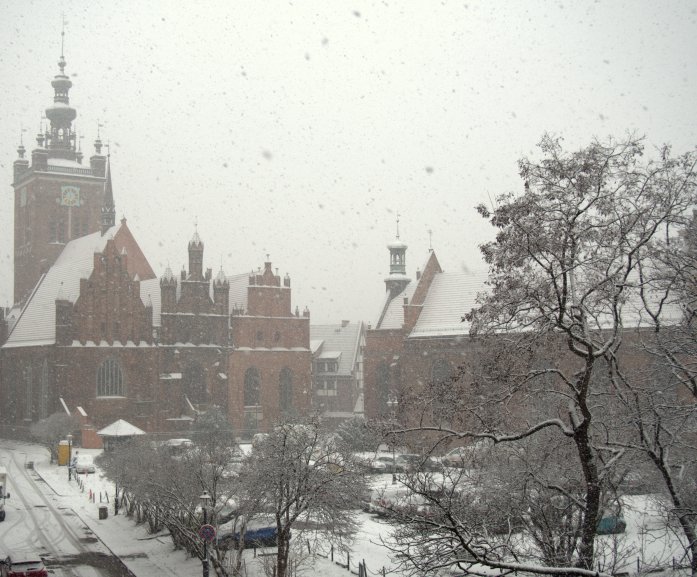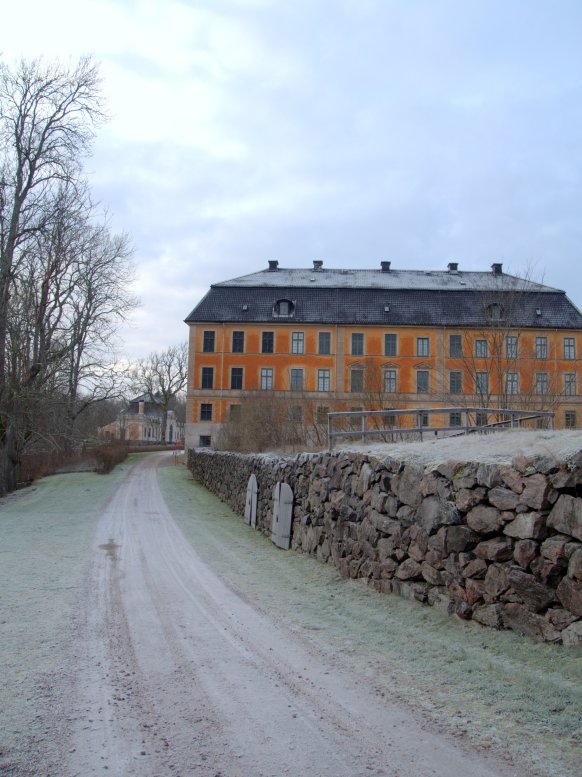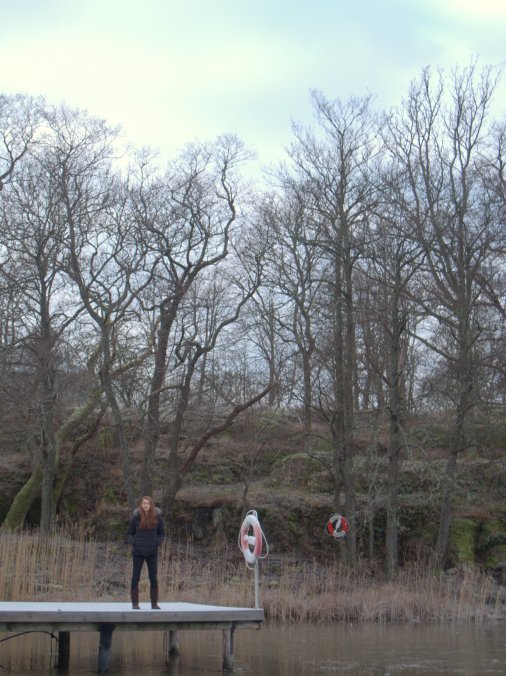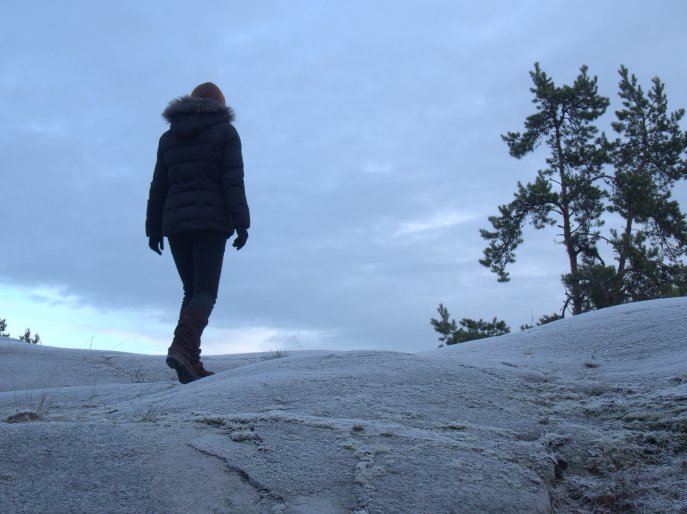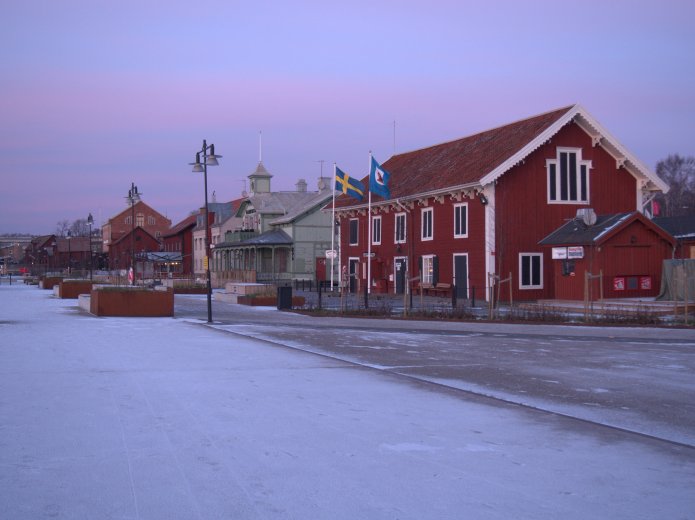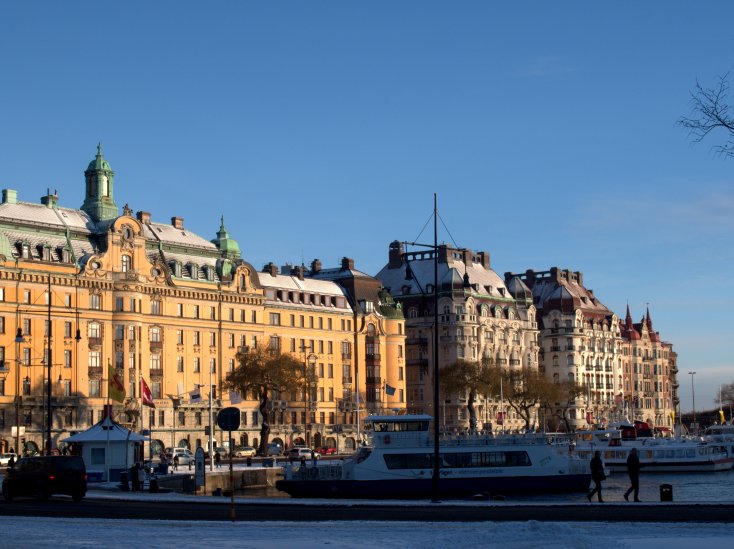Sometimes if you have a difficult decision to make, just stall until the answer presents itself.
–Tina Fey, Bossypants
Monthly Archives: January 2015
This is why they are called Patients
When met up with some family friends over Christmas, I was describing my life as a medical student. I said that most of my time goes to studying, but it’s really interesting. “And now that I’m in third year, my courses are held in the clinics. So, I get to poke and prod at the patients!” (The conversation was in Swedish, so actually I was saying that I get to ‘peta på patienterna.’)
This aroused some mild shock. Don’t medical students take a physical examination seriously? Poking and prodding? It sounds like you’re joking around. Shouldn’t you be looking for signs and symptoms?
Of course! Medical students take the physical examination EXTREMELY seriously! We put an IMMENSE effort into connecting with the patient! As a medical student, I make an incredible effort to be extra careful because I really don’t want to hurt the patient!
But let’s be real. I don’t have a clue. At least, not right now when my study of clinical medicine has lasted for mere months.
At the start of term, I was scared to even look at the patient, let alone touch him or her. There’s something rather bold about inspecting another person’s face and body, scrutinizing for hints of asymmetry and discolouration. Listing off the abnormalities in another person’s physical appearance — now, there’s an activity which is unacceptable in pretty much any other situation than a doctor-patient relationship (or wannabe doctor, I should call myself).
Palpation was even more terrifying until I got used to it. For those of you who don’t know, “palpation” is the appropriate word for “touching” in a physical examination. For instance, it would be inappropriate for me to “touch people,” but perfectly acceptable to “palpate patients.” Our teachers evaluate us on our skills at touching people (see how weird that sounds?), which so far has gone well, so I suppose I must have learned something.
Passing grade or not, I still have a long way to go. There is very, very, very much that I do not know. That said, I do know some things! I’m starting to finally be able to detect abnormalities in a physical examination and report them in a semi-professional way. But most of the time, I don’t really know what it means. I will, eventually. But as a third year medical student, I am the last person in the hospital whom the patient wants to meet. In other words, I am #1 on the list of 10 People the Patient Wants to Avoid.
Why? Because there is nothing I can do that will benefit the patient. I know it, the patient knows it, my supervising doctor knows it. My physical examination will not diagnose a disease and save the patient’s life. When a doctor examines a patient, the doctor gathers information and uses it to do something for the patient. But when I examine a patient, I poke and prod at the patient until the patient gets tired of me and wants to eat lunch, which is now cold after waiting for me to finish poking and prodding.
Some patients literally run away at the sight of us. White coats, youthful eager expressions, backpacks– GET OUT WHILE YOU CAN. Impressively, though, the majority of patients at the Gdansk University Hospital are willing to cooperate with medical students. For this, I am deeply and eternally grateful.
It is a selfish thing to be a medical student. My interactions with patients are for the benefit of my learning, and the remainder of my time is spent studying to pass my exams (which have no effect on anyone but me). Becoming a doctor, however, is when the selfish medical student metamorphoses into someone offering a service. I’m not saying all doctors are selfless, nor that being a doctor would qualify me as an excellent human being. But I like to rationalize my current selfishness with my potential usefulness in the future. I humbly thank the patients I meet now, and I promise I’ll give it all back in the future; maybe it will affect them, maybe it will just affect other patients, but at least it’s something.
It’s interesting to hear why patients agree to be examined by medical students. I’m still working on my Polish, but I understand enough to understand this. Many of the patients who agree to cooperate with medical students say it is their contribution to the field of medical science– their sacrifice for the greater good. I think generations of this type of altruism is the only reason why qualified doctors can even exist. A doctor must start out as a student. Someone has to be the first patient to let the student poke and prod.
It takes a great deal of patience to be a patient. In particular, I extend my sympathies to anyone who presents with a textbook case of a disease. If your eyes test positive for all the signs of Graves’ disease, or if you have all the classic physical manifestations of Cushing’s syndrome, you may be visited by up to eight groups of medical students by lunch– and each group contains about 4 students each. I have so much appreciation for these patients! Thank you for letting me be the thirty-second student to inspect your characteristically rounded cheeks and examine your abdominal striae. And the patients who make the mistake of answering our teachers, “Yes, I speak English…” They will surely be interviewed by English Division about their medical history dozens of times. Thank you kindly.
To summarize, my point is not to discredit my abilities as a medical student. I’m learning lots and getting better with each passing day, no doubt about it. I no longer feel like an awkward person touching people at a hospital, rather I palpate patients and I’m identifying what’s going on (at least a little). The point is, I just want to give a huge shout-out to every person who has ever agreed to be examined by a medical student. We really, really appreciate it. So, thanks a lot and dziękujemy bardzo!
A Quote about Wisdom
Whoa! It Snowed!
This is what happens when I study too much: A Test About Daily Life in the Style of a Pharmacology Colloquium
Allotted time: 15 minutes
Passing score: 60%
Directions: In this section, use the following scheme: correct is/are: A. 1,2,4 B. 1,3 C. 2,4 D. only 4 E. all statements
1. Things which I am going to do today are:
1) Study 2) Eat cereal 3) Watch TV during my lunch break 4) Take a shower
2. In the past 7 days, weather in Gdansk has included:
1) Wind up to 65 km/h 2) Hail 3) Rain 4) Lemondrops and gumdrops
3. Places which sell food on campus of the Medical University of Gdansk include:
1) Dean’s office 2) The new hospital (CMI) 3) The psychiatry building 4) Biomedicum
Directions: Below given question items are complex sentences. Its first part is a statement (S) and the second one (after the word ‘because’) — a premise (P). In this section we use the following scheme:
A. S and P are correct, and there is a cause-effect relationship between them b. S and P are correct, but there is NO cause-effect relationship between them C. S is correct, P is false D. S is false, P is correct E. both S and P are false
4. The only thing I can talk about these days is zumba BECAUSE I don’t know what to cook for lunch today.
5. Two of the most popular streets for English Division students to live are Szeroka and Ogarna BECAUSE the school library is open 24 a day during exam period.
Directions: Each of the numbered items or incomplete statements in this section is followed by answers or by completions of the statement. Select ONE lettered answer or completion that is BEST in each case.
6. What does the name of the Polish grocery store “Biedronka” mean in English?
A. Butterfly B. Food C. Little Frog D. Monkey E. Ladybug
7. When will the next Canadian federal election take place?
A. March 2015 B. September 2015 C. October 2015 D. September 2016 E. Undecided
8. The best time to do dishes is:
A. Immediately B. In the evening C. Every morning D. On Friday nights E. The dishes will wait, life won’t
PRESCRIPTIONS: Prescribe a drug for:
9. A medical student with chocolate cravings
10. A hungry young woman
11. Drug of choice for wakefulness
.
.
.
.
ANSWER KEY:
1. E
2. B
3. A
4. B
5. C
6. E
7. C
8. E
Suggested prescriptions: 9. Marabou chocolate 100 g, 10. Roasted potatoes and chicken 450 g, 11. Instant hazelnut flavoured coffee 15 mg/dl


